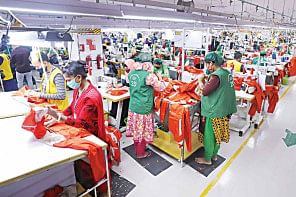Towards a sustainable criminal justice system

Given that economic sufferings of the justice seeking people are immense in our country, the time demands a sustainable criminal justice system that shall enable underprivileged people to secure meaningful access to justice. As an objective in the paradigm of Sustainable Development Goals to be achieved in 2030 equal access to justice is one of the fundamental human rights.
Access to justice has different meanings. It may be defined narrowly, to signify an individual's right to bring a claim to a court or tribunal and to have that court or tribunal decides the claim. It could also refer to the right to be given legal aid when the individual does not have the resources required to avail of legal remedies. In a broad sense, access to justice also includes, as a critical element, the individual's right to have his/ her claim decided according to substantive standards of fairness and justice. However, the time consuming, expensive and non-supportive aspects of administration of criminal justice in Bangladesh are some of the challenges for ensuring people's right to justice.
To solve these challenges and implement reformative changes in administration of criminal justice, the cost effective, supportive, speedy procedural strategies can be adopted. The combination of those strategies for their result-oriented outcome in ensuring the right to justice to the optimum level can be labeled as 'sustainable justice scheme'. The viability of this scheme can be achieved through harmonious application of rule of legal justice and principles of natural justice within our jurisdiction in the justice sector.
This scheme necessarily involves few creative methods in all three strata (pre-trial investigations, trial and post-trial execution) of the criminal justice administration to provide expeditious dispensation of expected justice. That the said system ultimately caused a sharp decline in the unbearable expenses and undue delay involved in the litigation incurred by the litigant people as well as the Government of Bangladesh resulting in a productive economic environment where the saved expenses of the government and general people along with the precious time of the people were invested in the financial activities supplementary to economic growth.
On top of that, speedy disposal of criminal disputes through this system fundamentally mitigated the long-standing enmity and adversarial attitude of the people of our country leading to the protection of human rights, endurance of human security and endorsing of democracy-based good governance. The principal legal actors in the administration of justice viz. the judges and magistrates, the Court-staff, the lawyers, the public prosecutors, police personnel and concerned Government officials can be integrated for implementing the aforesaid scheme.
To be specific the 'sustainable justice scheme' includes but not limited to the following methods:
♦ Court-annexed legal aid to ensure access to justice for the marginalised litigant people
♦ Information and communication technology based expeditious summoning and evidence recording
♦ Encouraging the litigant parties to resolve the disputes through alternative dispute resolution mechanisms i.e. mediation, conciliation and arbitration
♦ Ensuring speedy trial of cases through one-sitting summary trial or trial without any needless adjournment depending on the gravity of the offences alleged.
♦ Reducing case-backlogs through case management strategies and priority based disposal of the long-pending cases.
Successful implementation of this scheme will substantially contribute to the sustainable development and good governance. It will help to uplift the rule of law, enabling people to save litigation-consumed time, strengthening democratic institutions in a comparatively placid society with controlled law and order situation.
The writer is a Senior Assistant Judge, Bangladesh Judicial Service.

 For all latest news, follow The Daily Star's Google News channel.
For all latest news, follow The Daily Star's Google News channel. 



Comments